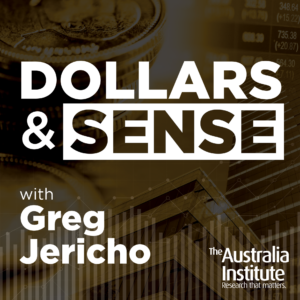Sorry media, neither Victoria’s budget nor its economy is in bad shape
Victoria’s budget and economy are actually doing well – both the state’s public net worth and overall economy recovered solidly from the pandemic.
At the moment numerous media outlets are attempting to make the case that the Victorian government’s finances are in a parlous state. The Financial Review for example has editorialised “Allan and Pallas in denial about Victoria’s state of decline”, while The Age stated as though it was an uncontested fact that “The state’s finances are heading towards a cliff.”
The media like to point to Victoria’s debt and deficit but they do so by including government fixed capital investment in the deficit. This might seem to the layperson as perfectly reasonable, but it is not how accounting works in the private sector and it presents a distorted picture of the state of the budget.
Including capital investment in a similar manner would, for example, see BHP’s 2024 profit drop from its declared US$20.7 billion to a marginal US$0.2 billion. Many other profitable companies would be in deficit were their budgets measured in the same way that now has the media suggesting the Victorian state finances are in deep trouble.
In 2022-23 (the latest year of ABS data), Victoria’s general government sector actually made a profit (net cash flow from operating activities) of $4.0 billion. Victoria’s budget papers also show a $1.4 billion surplus from operating activities in 2023-24.
The problem is that when the deficits reported in the media include Victoria’s investments it makes it seem like such things are bad. However, if BHP (or other companies) invests in new plants, it is generally accepted that that is a good decision – something that increases capacity and productivity. But, according to the media, if Victoria invests in infrastructure and other capital it adds to the deficit and is thus axiomatically a bad thing.
We need to be much more honest about how we report government debt. Most home buyers for example know they are getting into debt when they buy a house – indeed they are getting into more debt than they likely ever will in their entire life. But these people know that having their own home is worth going into debt. They will be paying it off as they use it. The same situation occurs with Victoria’s “debt”. Victoria’s roads, schools and hospitals will be used while the debt is paid off. Those schools, roads and hospitals (and other infrastructure) also add to Victoria’s economic potential and improve the lives of Victorians.
And importantly, Victoria is not going “broke”. Victoria now has assets of $412.9 billion, much higher than its total liabilities of $177.5 billion giving Victoria a net worth of $235.4 billion. Yes, liabilities have increased – but so too has Victoria’s net worth. Victoria’s public net worth increased 24% from 2020-21 to 2022-23 – nearly 3 times the level of inflation in the Victorian economy over that period.
Even better, from 2020-21 to 2023-24, Victoria’s economy grew faster than every other state – up 12% compared to NSW’s 8.1% growth and the 9.4% growth of Australia’s GDP.
This is hardly an economy or state budget in crisis, and it is time some more rational and common-sense reporting reflected that.
Between the Lines Newsletter
The biggest stories and the best analysis from the team at the Australia Institute, delivered to your inbox every fortnight.
You might also like
Victoria really doesn’t need any new gas
Recently, we published a video showing a huge new gas drilling rig in Victoria, within sight of the 12 Apostles – a globally recognised tourist hotspot. As Dr Emma Shortis says in the video: “We are putting our coastlines at risk to extract gas we don’t even need. Australia already produces way more gas than
New analysis reveals Victoria produces more gas than it uses
New analysis by The Australia Institute reveals Victoria does not have a gas shortage, with the state producing more gas than it uses and consumption at its lowest level since the 1980s.
Is this growth…good?!
Rooftop solar and data centres are drivers of Australia’s economic growth, but do they really bring the same value to Australian society?



